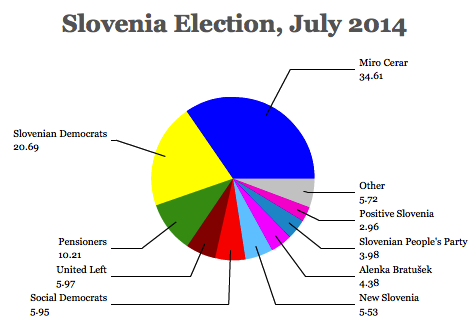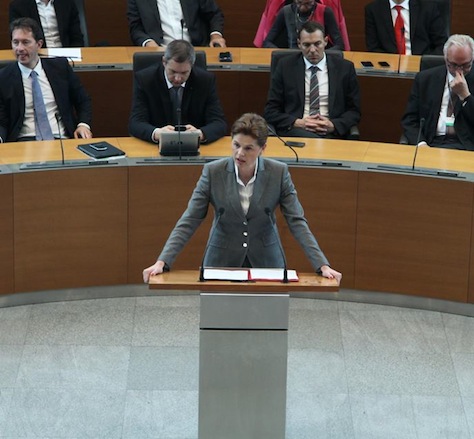Slovenians on Sunday turned over their country’s government to Miro Cerar, a political neophyte that barely anyone outside (or even inside) Slovenia had ever heard of a year ago.![]()
Cerar (pictured above), an attorney and law professor, and the son of an Olympic gymnast, formed the Stranka Mira Cerarja (SMC, Miro Cerar’s Party), barely a month ago. But that didn’t matter to Slovenians, and the SMC easily won the July 13 snap elections by a margin of 34.6% to 20.7% against the center-right center-right Slovenska demokratska stranka (SDS, Slovenian Democratic Party), whose leader, two-time prime minister Janez Janša, has been sentenced to two years in prison in relation to corruption charges. Cerar’s victory represents the strongest victory of any party in a Slovenian election since the return of Slovenian sovereignty in 1990.
Sunday’s snap parliamentary elections follow the resignation two months ago of Alenka Bratušek, Slovenia’s first female prime minister, after just over a year in office. Bratušek’s center-left coalition government is the second government since Slovenia’s last elections in December 2011.
* * * * *
RELATED: Bratušek, Slovenia’s first female prime minister, resigns
* * * * *
Cerar will now likely command 36 seats in the 90-member, unicameral Državni zbor (National Assembly), forcing him to form a coalition government with any of a number of allies in a National Assembly that remains fragmented, despite the strength of Cerar’s mandate.
Cerar’s success is in large part due to his novelty. He’s not tainted by the past six years of austerity or the past two decades of corruption that characterizes much of Slovenia’s political elite. He lies somewhat in the center or center-left of Slovenian politics, leaning right on the need for economic reform, but leaning left on the need for reconsidering some austerity-era policies that Cerar believes have harmed Slovenian growth. For example, he’s called into question several recent plans for privatizations, including the national telecommunications company and the corporation that run’s the national airport. Continue reading How Miro Cerar rose to the top of Slovenian politics in four weeks



